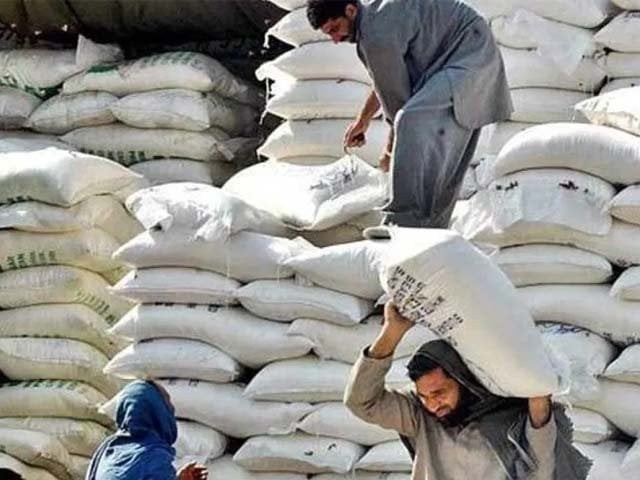Crisis looms as wheat sowing shrinks in Punjab
Food secretary says imports not viable at present due to high prices

A wheat crisis is still looming in the country as cultivation of the staple crop has dropped in Punjab, setting off alarm bells.
Chairman of the National Price Monitoring Committee (NPMC) has expressed concern over the decline in wheat plantation area in Punjab compared to the target set for the current season.
In a recent meeting, NPMC reviewed the stock position of different crops including wheat.
Owing to the anticipated shortage, the government plans to import wheat to build strategic reserves and tackle the potential crisis in coming months.
National Food Security and Research secretary revealed in the meeting that wheat prices were currently at higher levels in the international market. Therefore, “it is not viable to import wheat at present for building strategic reserves.”
Keeping in view the current situation, the committee chairman emphasised the need for preparing a comprehensive strategy by analysing the overall estimated production and consumption in the current as well as next season.
He also suggested an analysis of the remaining carry-forward stock for accessing and preparing a future strategy to build strategic reserves of the commodity.
While discussing the prices of edible oil and ghee, industries and production secretary said that the industries ministry was sensitised to the persistent rise in prices of essential goods in the domestic market.
He informed the committee that the ministry had carried out a comprehensive cost audit of ghee manufacturing units and held meetings with them in close liaison with the provincial governments.
He said that the ministry was going to notify the prices of edible oil and ghee shortly.
The Ministry of Industries was directed to update NPMC about the actions being taken against the vegetable ghee and edible oil manufacturers for the undue price escalation.
The chairman also told the ministry to share category-wise consumption data of ghee and edible oil with the Pakistan Bureau of Statistics (PBS) for its true reflection in the calculation of Consumer Price Index (CPI).
Turning to fertiliser, the industries secretary told the meeting that daily release of fertiliser was being ensured and imports from China (100,000 tons) were also in the pipeline, which would be completed in March.
He gave updates on urea inventory, which would be around 200,000 tons in March and rise further in April.
Committee chairman directed the Ministry of National Food Security to prepare a comprehensive proposal, in consultation with the provincial governments, on the import of fertiliser and a mechanism to provide targeted subsidy to farmers in the upcoming Kharif sowing season.
The meeting discussed the gap between wholesale and retail prices of essential items. The chairman, however, voiced concern over the wide gap between the wholesale and retail prices of potato, tomato and onion in Punjab and Sindh.
He directed the governments of Sindh and Punjab to look into the matter and take appropriate measures.
The meeting reviewed the recent spike in prices of essential items at Utility Stores Corporation (USC).
USC managing director told NPMC that prices of branded items had not been increased since October 2021, which caused supply disruption on the part of brands.
He added that prices of a few items such as pulses had been increased following fresh procurement by USC at higher prices.
Industries secretary countered that prices of these items were still lower compared to the retail markets.
Committee chairman directed the USC MD to issue a press release focusing on prices of items sold at utility stores at lower rates compared to the retail markets.
After deliberations, the price control committee decided that the Ministry of National Food Security would update NPMC on estimates of wheat production, consumption and the quantity required for building strategic reserves next year.
It directed the industries ministry to take strict action against the vegetable ghee and edible oil manufacturers for price escalation and ensure fair prices in the market in consultation with the provincial governments.
Published in The Express Tribune, February 6th, 2022.
Like Business on Facebook, follow @TribuneBiz on Twitter to stay informed and join in the conversation.



















COMMENTS
Comments are moderated and generally will be posted if they are on-topic and not abusive.
For more information, please see our Comments FAQ